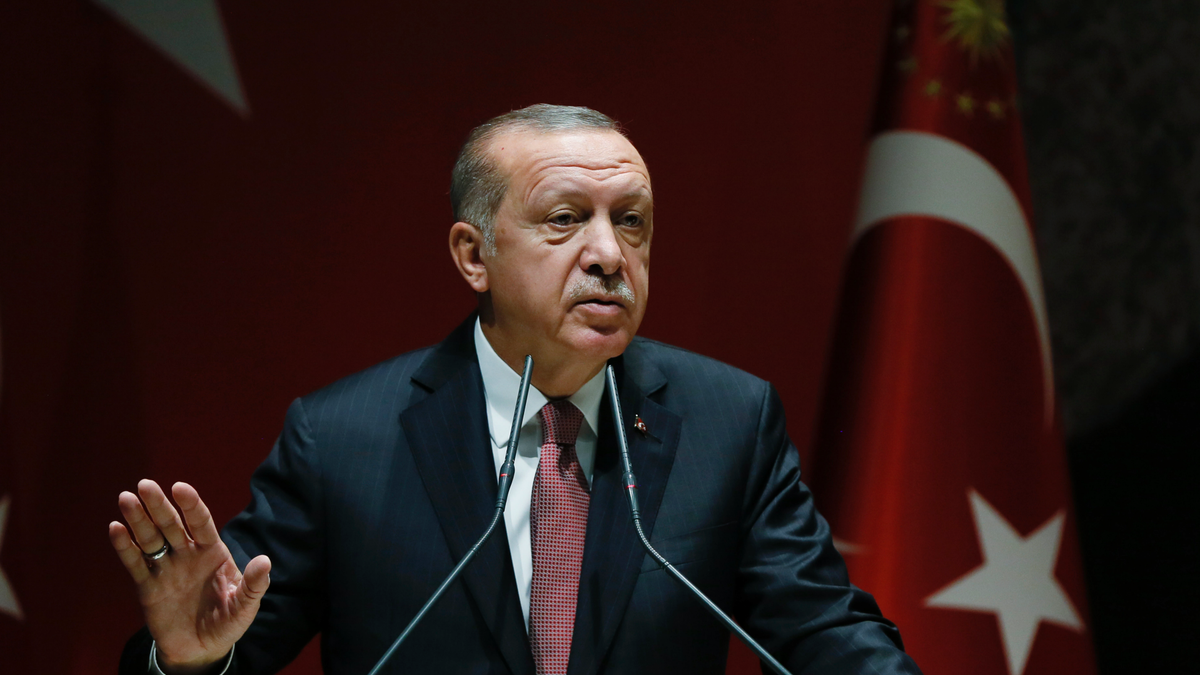
Turkey's President Recep Tayyip Erdogan talks to members of his ruling Justice and Development Party (AKP), in Ankara, Turkey, Friday, Oct. 26, 2018. The Saudi officials who killed journalist Jamal Khashoggi in their Istanbul consulate must reveal the location of his body, Erdogan said Friday in remarks that were sharply critical of the kingdom's handling of the case. (Presidential Press Service via AP, Pool)
ANKARA, Turkey – Turkey will press for a clear outline of steps toward a political resolution of the conflict in Syria during a summit gathering the leaders of Turkey, France, Germany and Russia, a top official said Friday.
Turkey's President Recep Tayyip Erdogan, German Chancellor Angela Merkel, French President Emmanuel Macron and Russian President Vladimir Putin gather in Istanbul on Saturday to discuss the situation in the northwestern province of Idlib, access of humanitarian aid, the drafting of a constitution and reconstruction of the war-torn country.
Turkish presidential spokesman Ibrahim Kalin said Turkey will also push for the preservation of an agreement reached last month that set up a demilitarized zone around Idlib.
The agreement reached between Russia and Syria prevented a government offensive on the last rebel stronghold in the country. Idlib has been calm since, though some militant groups have not met an Oct. 15 deadline to evacuate the demilitarized zone.
Many feared that a government offensive in Idlib would trigger a new refugee crisis as the region is home to some 3 million people, many of them already displaced by the war from other parts of Syria.
The solution in Syria "is a political one, not a military one," Kalin said.
France has said it intends primarily to promote the maintenance of the cease-fire in Idlib to avoid a humanitarian catastrophe and a new mass wave of refugees, and the effective launch of an inclusive political process in accordance with a United Nations resolution.
The summit comes amid Turkish threats of a new military operation across the border into northern Syria, in zones held by Syrian Kurdish fighters. Turkey considers the Syrian Kurdish militia, which is backed by the United States, to be terrorists and a part of the Kurdish insurgency within Turkey.
On Friday, President Recep Tayyip Erdogan said Turkey would not allow "terror groups located east of the Euphrates River" to threaten Turkey's security.
Turkey launched two incursions into Syria, in 2016 and 2018, into areas west of the Euphrates, pushing Islamic State militants as well as Syrian Kurdish fighters from its border.








































